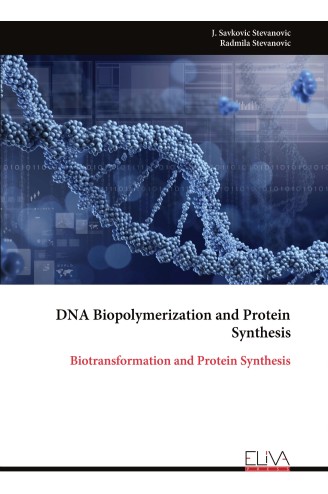
DNA Biopolymerization and Protein Synthesis
$ 89.5
Description
This book describes genes in protein synthesis. Nucleotide is composed of one of four nitrogen-containing nucleobases (cytosine, guanine, adenine and thymine), a sugar called deoxyribose and a phosphate group. The relationship between the nucleotide sequences of genes and the amino-acid sequences of proteins is determined by the rules of translation so called genetic code. Protein synthesis is consists of two processes: transcription and translation. Transcription is the first part of the central dogma of molecular biology: DNA→ RNA. Translation is the second part of the central dogma of molecular biology: RNA→Protein. How life was becoming on the Earth describes in the chapter second and fourth. Why health cells transform into malignant explains in the chapter seventh. This book has audience students, researchers, scientists and many people which in their work occupied by genetics. Also, the book is very useful for medical, biological and chemical courses for graduates and undergraduates students. The book contributes in the new methods development for biological parameters determination and chemical and medical methods applications. Algorithms, models and signal processing put this book apart to other books in this field.



